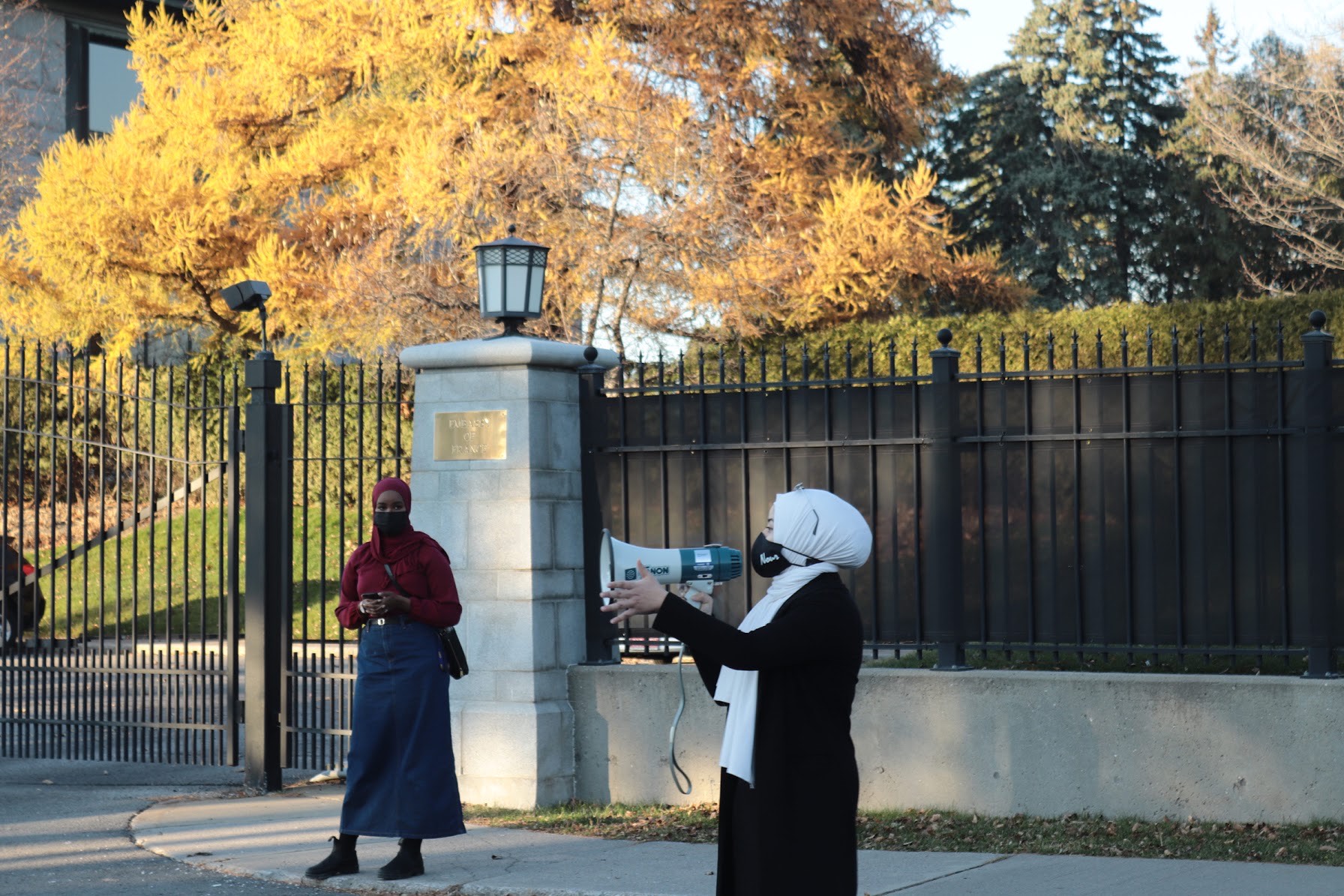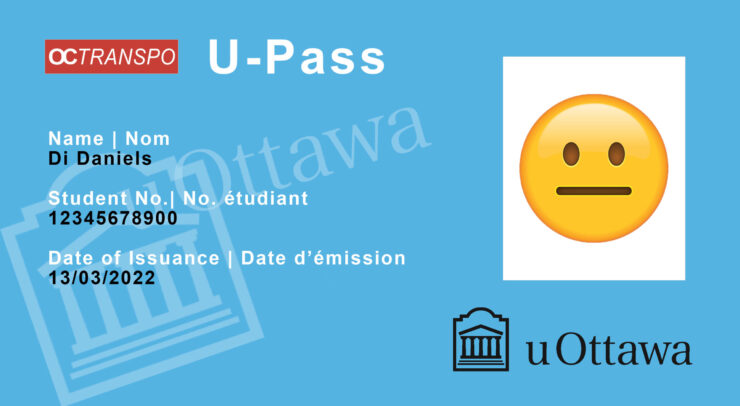Hijab-first, identity-second politics
It was June 16, 2019, when Bill C-21 first passed by a 75-35 vote in Quebec’s National Assembly. Also referred to as Quebec’s secularism bill or laicity law, there is no name for Bill 21 that disguises its true intentions: there is nothing neutral about this religious neutrality bill.
Bill 21 claims to strive for secularism through the prohibition of public service workers from wearing religious symbols during their civic duties, through the implementation of four principles: religious neutrality of the state; the separation of religion and state; the equality of all citizens; and freedom of conscience and religion.
However, Bill 21 is not the great equalizer it claims to be. How could it be, when it does not affect all people equally? Worse, when it infringes on citizens’ guaranteed Canadian fundamental freedoms as accorded in the Canadian Charter of Rights and Freedoms, such as the right to freedom of conscience and religion and expression? How can we dispute this infringement when Bill 21 hinges on Quebec’s government invoking Section 33 of the Charter, utilizing the notwithstanding clause that grants provincial legislatures or the Parliament the power to “override certain portions of the charter for a five-year term?” What kind of country are we, when Jagmeet Singh can be Canada’s Prime Minister, but can’t be a member of the public service in the Canadian province of Quebec due to his turban?

Nour Elmestekawy is a fourth-year student in the U of O health sciences program and a six-year contributing member of the University of Ottawa Muslim Students Association (uOMSA), of which she is currently an executive member as the administrative officer. Elmestekawy feels strongly about the discriminatory intentions of Bill 21.

“You’re not restricting everyone to the same extent. This affects three [groups of] people the most: Muslim women who wear the headscarf, Sikh men who wear the turban or practice the turban, and Jewish men who wear the kippah. The cross is a symbol that can be tucked under a shirt, and it is a basically invisible representation of your faith. It’s not something, at least from my understanding, that is mandatory or a pillar of the faith,” explained Elmestakawy in an interview.
“There’s definitely this compounding effect between race and faith in this discussion,” continued Elmestakawy. “It definitely doesn’t operate individually and I don’t think it operated as such when there were thoughts and discussions about [Bill 21], especially with the rise of immigration.”
This bill is discriminatory from its origins, evident by the fact that it was preceded by a 2017 failed Quebec niqab ban and a 2018 surge in immigration. Though the 2017 attempted bill did not seek to ban niqabs in name, I believe that its prohibition of full-face veils emphasizes a bald-faced truth: it sought to unconstitutionally, systematically oppress Muslim women who choose to practice a pillar of their faith by wearing a niqab. Amidst the mandatory mask mandates of 2020, the inherent illegitimacy of a bill prohibiting covering one’s face is apparent.

“This questioning of the intention of the bill is because the cross has been present for centuries, even the kippah, too, has been present for centuries, and there was no need to bring about this law. Then, all of a sudden there was this [attempted] niqab ban, right? And it didn’t pass. And right now, we’re seeing Bill 21, which seems to be affecting everybody, but again, you need to ask yourself, why did that follow the niqab ban that didn’t pass? What were the actual intentions behind the bill? Why wasn’t the bill introduced before? What started becoming an issue?” Elmestekawy explained in an interview.
“Personally, I don’t think it’s a coincidence that it came after a surge in immigration,” continued Elmestekawy. “I also don’t think that it’s a coincidence that the religions that are mostly targeted, that the people that practice them, the majority of them are marginalized. So, you need to ask yourself, is this a product of systemic racism?”
People living both inside and outside Quebec have noticed the discriminatory nature of the province’s secularism bill. In January, the Association for Canadian Studies (ACS) conducted a web panel survey that revealed that 55 per cent of Quebec residents support the laicity law. As a previous poll conducted by ACS in September of 2021 indicated 64 per cent support from the Quebec population, support for the secularism bill has evidently gone down.
On Dec. 16, 2021, Toronto City Council expressed their unanimous support for the legal challenge of this bill and provided a one-time financial contribution of $100,000 as a result of an urgent motion expressed by Mayor John Tory’s motion.
“Today, City Council made it very clear that Toronto stands with municipalities from across Canada in opposition to Bill 21 and in support of the legal challenge against this bill. We cannot simply stand by as Torontonians and Canadians and see a law like this diminish the protection and respect accorded religious and other basic freedoms by our Canadian Charter of Rights of Freedoms,” expressed Mayor John Tory in an issued statement in the council release.
“I’m very proud of Toronto for [t]aking that stance and I do think that other politicians should follow their lead because, simply, if you don’t make your stance clear about these issues, then you’re on the other side,” stated Elmestekawy in an interview.
Other politicians have made it clear that they, too, oppose this Bill as a discriminatory law that infringes on individual rights and freedoms. On Dec. 17, 2021, The Big City Mayors of Canada condemned Quebec’s laicity bill to be a “blatantly discriminatory” law that “must be repealed” after voting unanimously to “stand united in protecting the fundamental rights of all Canadians,” stated Jeff Lehman, Chair of Ontario Big City Mayors and Mayor of Barrie, Ont.

Despite the pressure of political leaders and decreasing support for Bill 21, it continues to function in Quebec society. On Dec. 3, 2021, Fatemah Anvari, a teacher in Chelsea, Que. was removed from her role as a grade three teacher because of her choice to practice her faith by wearing a hijab.
One might foolishly regard the decision to remove Anvari from her role as a teacher as necessary to secular education. However, I recognize these critiques of hijabs for what they are: thinly veiled racism. I strongly believe that religious symbols and secular education can coexist and any critiques of the opposite are part of a larger issue: the reduction of Muslim women who wear the hijab, Sikh men who wear the turban, and Jewish men who wear the kippah to their religions and the consequential dismissal of their personhood.
“A lot of people don’t see me. They see my headscarf before they see me,” said Elmestekawy, highlighting the detriment of the hijab-first, identity-second mentality that characterizes Bill 21.
“There’s this fear that showing their faith in these spaces will somehow take secular education in the way that, I guess, they’re hoping play out […] I really think it takes away from the merit and ability of a person to actually perform their job and instead judges people based on who they are. Which is no different from discriminating someone for their gender, or for their race, or any other thing,” echoed Elmestekawy.
My mother, a woman who wears a hijab as an educator, is exemplary of the way people who choose to wear symbols of their faith are capable of delivering secular education. Despite her obvious Islamic faith, she has been teaching in Catholic schools for years and has been nothing short of capable and qualified. She is fortunate enough to have mostly pleasant experiences with her colleagues and students as an educator, with one colleague in particular who offers up her Catholic school classroom as a safe place for her to pray. If she, a Muslim woman, can successfully educate students in a Catholic school, what argument remains that the co-existence of religion and education is antithetical?
Though Bill 21 is unique to Quebec, Islamophobia and racism aren’t. Right here in Ontario and in Canada as a whole, racism and Islamophobia run rampant. As Jan. 29 came and went, the five-year anniversary of a tragic Quebec City mosque attack was overshadowed in news coverage by a trucker convoy protest with organizers that have a “history of white nationalism.” This is representative of a larger issue of Islamophobia and discrimination in Canada.

Nour Elmestekawy can speak to incidents that have occurred right here in the nation’s capital that have incited her, her mother, and sister to think, “Maybe I don’t entirely belong here.” Even in her workplace as a patient sitter, she states that “nine times out of ten, the conversation is about [her] headscarf,” which negates her identity as a person, as there is much more to her than just her hijab. To the same effect, Elmestekawy’s mother was questioned by her neighbour, whom she knew for years, about whether or not she would pressure Elmestekawy’s sister to wear a hijab.
“Do you think I walk around with my hijab on, my headscarf on, because someone’s forcing me to do it, and not because I decided to do it?” Asks Elmestekawy, “This is my neighbour. We’ve been neighbours for years. So, you know me on a personal level and you’re saying this stuff — imagine what other people who don’t have a connection with any Muslims [think].’
“[My mother] would go to an English as a second language school and every day that she went, she would be followed consistently by this man who would go up to her and tell her to go back to her own country,” explained Elmestekawy.
These are just a few of the many instances of Islamophobia, xenophobia, and racism that Elmestekawy can recall, and they’re reflective of experiences that I and other marginalized individuals in Canadian society have had the displeasure of experiencing. So, as much as Bill 21 is a Quebecois problem, discrimination is a national one. Eliminating Bill 21 is the next of many oppressive archetypes that we must dismantle to create a Canada that can boast of a true commitment to freedom of expression and religion.






